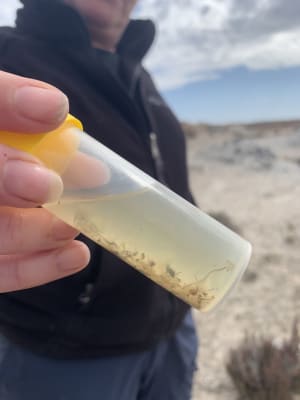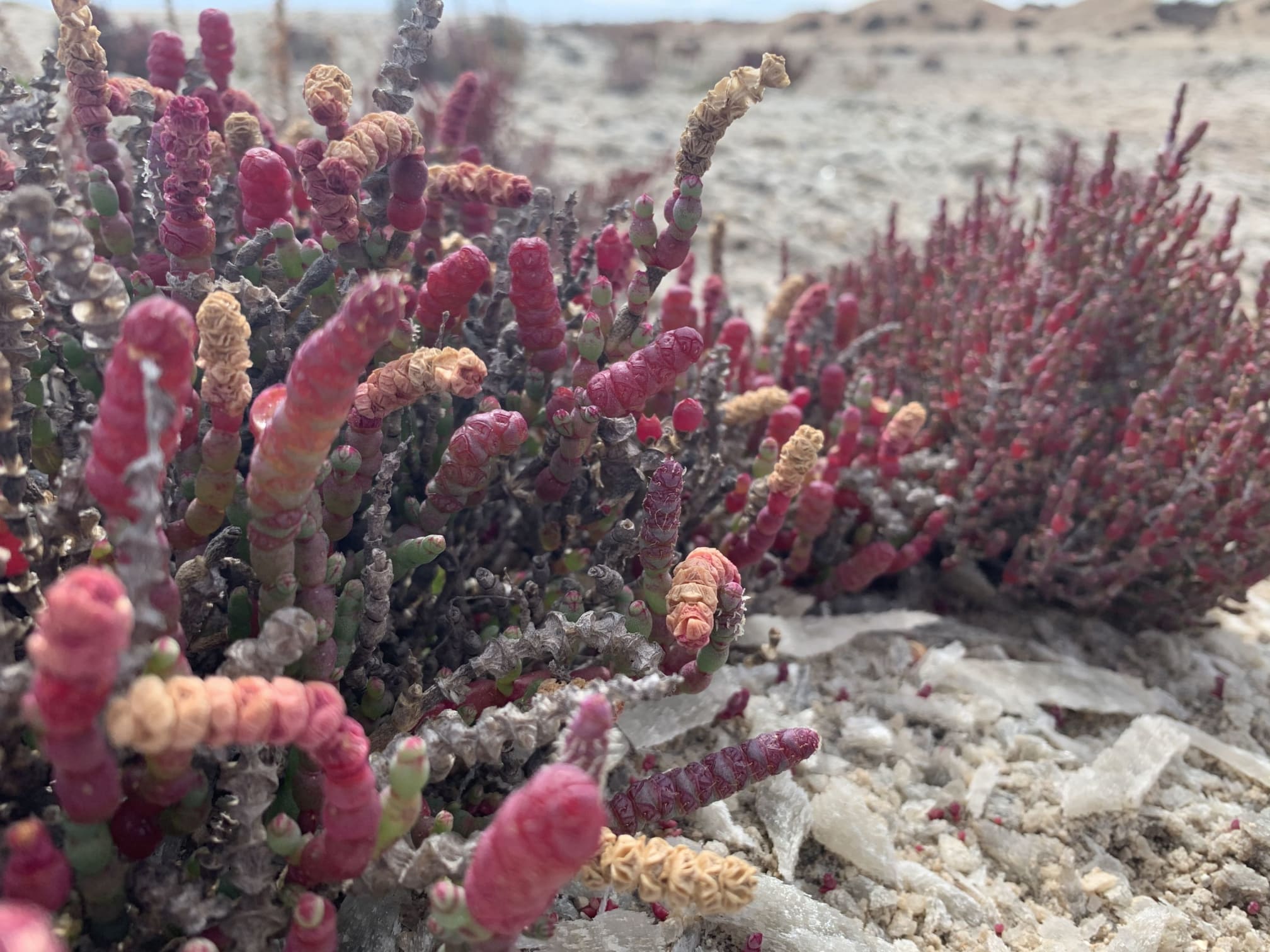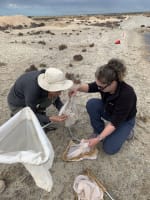Although most of the ecologists are packing up today, as the wonderful 2 weeks of Bush Blitz is coming to the end, I was lucky enough to go out with the Marine Biologist again. I was, however, a little bit concerned that they headed inland instead of the beach to find their specimens! We drove through some very low lying vegetation looking for salt lakes (plants don’t seem to grow very big when the ground is salty). After taking a few wrong turns along the way – there are a lot of dirt tracks in this remote country that don’t always lead to where you want to go – we eventually could see that the salt lake we were searching for was dry.
So why look for salt lakes? Marine biologist study animals and plants that live in salt water and these low lying salt lakes have very salty water- so the creatures living there can be similar to marine creatures as they are both salt tolerant.

We found an area that looked a bit like a dam with very clear water and some amazing shapes of salt crystals at the bottom. With the aid of scooping nets we found some very small creatures called isopods or brine shrimp (types of crustaceans – like prawns). We were actually looking for ostracods which are also crustaceans but they look like mini mussels or bivalves. We couldn’t see any but hopefully there were a few small ones in our samples that will be discovered once they look under a microscope. We then visited another large inland lake that was a lot less salty – no big crystals – but didn’t have as much life as the first lake.


After a fairly successful morning the marine biologists headed back to base camp to start the big task of packing up all of their specimens to heading back to Adelaide where they will sort and document their findings.
Question of the day: Incredible to think that you find life in water that is very salty – can you find out what the concentration of salt is for sea water and salt lakes? What animal lives in the saltiest water?